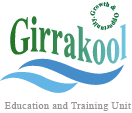27
OctoberDrug And Alcohol Rehab: Is just not That Difficult As You Assume
Introduction:
Cocaine addiction is a significant community health issue who has extensive ramifications for folks, households, and community all together. The addictive properties for this stimulant medication make it difficult to overcome, ultimately causing devastating effects for users in both the brief and future. This report is designed to offer insights into cocaine addiction, its effects, and potential treatments.
The Range associated with the Problem:
Cocaine addiction is on the rise globally, impacting many people from all parts of society. The first allure regarding the medicine is based on being able to cause emotions of euphoria, increased power, and heightened self-confidence. But duplicated usage often contributes to threshold, requiring greater doses to attain the desired result. This pattern of good use can very quickly spiral unmanageable, ultimately causing addiction.
Results of Cocaine Addiction:
The physical and psychological consequences of cocaine addiction are devastating. Physiologically, prolonged abuse of medication may result in aerobic complications, respiratory problems, and harm to organs just like the liver and kidneys. Psychological state disorders such depression, anxiety, and paranoid psychosis are normal the type of suffering cocaine addiction. The economic burden of these addiction is astronomical, as individuals prioritize obtaining the drug over meeting daily needs, leading to work reduction, bankruptcy, and strained relationships.
Fundamental Elements and Threat Facets:
Different elements subscribe to the introduction of cocaine addiction. Socioeconomic standing, hereditary predisposition, and mental facets eg impulsivity and thrill-seeking behavior all are likely involved in increasing a person's vulnerability to addiction. Furthermore, contact with a supportive environment, familial history of substance abuse, and childhood upheaval can substantially increase the possibility of cocaine addiction.
Treatment Plans:
Addressing cocaine addiction calls for a comprehensive approach that combines health, emotional, and social interventions. Detox is frequently step one, permitting individuals to properly withdraw through the medication under health guidance. Medicines could be recommended to handle detachment signs and lower cravings. Cognitive-behavioral therapy (CBT) indicates promising outcomes, helping people identify triggers, develop dealing systems, and modify maladaptive patterns of thinking and behavior.
Supporting sites eg 12-step programs or team therapy are important in cultivating recovery and supplying continuous help. Holistic methods that focus on change in lifestyle, tension decrease strategies, and alternate therapies like acupuncture therapy or meditation are becoming investigated to complement conventional treatments.
Prevention and knowledge:
Protection is an important aspect in combating cocaine addiction. Community wellness promotions that stress the dangers of cocaine usage, its addictive nature, while the possible effects are necessary in curbing its prevalence. Schools and educational organizations should apply evidence-based substance abuse programs that instruct young individuals in regards to the risks related to medication usage and instruct refusal skills.
Conclusion:
Cocaine addiction remains an important community health nervous about far-reaching consequences. The vicious period of addiction and its own damaging results on actual and psychological state necessitate effective avoidance initiatives, very early intervention, and comprehensive treatment options. It is very important that governing bodies, health professionals, and communities interact to handle this damaging epidemic and offer the required assistance for people experiencing cocaine addiction.

